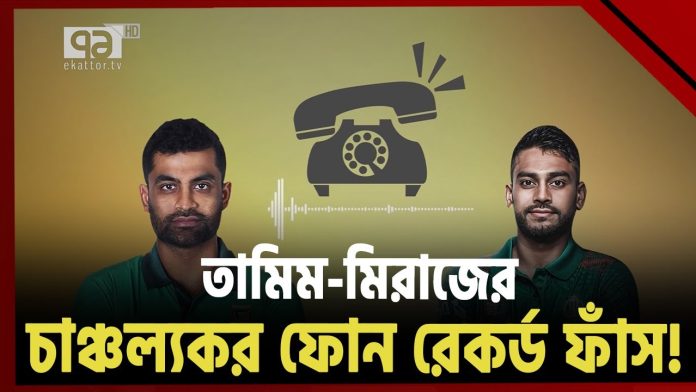This article was published in the Dhaka Tribune on May 4, 2024
How a contentious marketing move featuring cricket stars reveals the perils of misinformation
In the digital age, the interplay between brands, celebrities, and the media has become increasingly intricate, often blurring lines and raising questions about transparency and ethics. A recent marketing campaign by a digital financial service, featuring cricket stars Tamim Iqbal and Mehedi Hasan Miraj, has ignited a firestorm of controversy. Moreover, the involvement of a prominent sports bulletin has added another layer of complexity to the discourse, highlighting the perils of misinformation in the cricketing landscape.
The campaign, featuring popular cricketers Tamim Iqbal and Mehidy Hasan Miraz, Mushfiqur Rahim, and Mahmudullah Riyad, leveraged the cricketers’ fame and influence to launch an Eid marketing campaign for that particular digital financial service across various platforms.
At the beginning of Ramadan, a prominent sports bulletin shook the cricketing world with a supposed leaked private conversation between Tamim Iqbal and Mehidy Hasan Miraj — in the conversation, Tamim appeared to have threatened Mushfiqur Rahim and Mehidy Hasan Miraz.
Meanwhile, a private television channel broadcast that issue as news, but how the record was obtained/leaked was not disclosed. Netizens took the matter seriously after seeing a television news bite about this conversation.
Later on, Tamim Iqbal personally divulged the mystery of that phone conversation by appearing on Facebook Live. It was revealed that the leaked conversation was not a private exchange but a cleverly orchestrated advertisement for a mobile phone-based digital financial service.
FactWatch, an independent fact-checker, identified this audio content as missing context and rated that viral conversation as “misleading content.”
That phone call was promoted as exclusive news, but nowhere was it mentioned that it was part of a marketing campaign. The absence of an official statement in this story has intensified the mystery surrounding that private conversation.
While some fans expressed relief upon learning the true nature of the leaked conversation, others voiced concerns about the ethics of using tactics for commercial purposes. While sports bulletins traditionally serve as sources of news and analysis within the sporting community, their role in this marketing campaign raises questions about journalistic integrity and ethical standards.
In the age of digital marketing, brands constantly seek innovative ways to capture consumers’ attention. However, such a marketing move has sparked controversy and raised concerns about the spread of misinformation in society. The incident sparked a broader conversation about privacy in the digital age and the responsibilities of brands as well.
However, the controversy underscores broader issues surrounding the responsibility of brands, celebrities, and media outlets in shaping public discourse.
Ultimately, such a marketing strategy using cleverly orchestrated “leaked conversations” between cricketers serves as a cautionary tale about the hazards of misinformation in today’s digital landscape.
This type of implicit endorsement questions the integrity of celebrities, as it can mislead the general public into making uninformed decisions based on false information.
As society grapples with the complexities of navigating an information-saturated world, brands, celebrities, media outlets, and consumers must work together to uphold transparency, integrity, and truthfulness in all forms of communication.
Celebrity cricketers, especially those with huge followers and influence, have a responsibility to ensure that their endorsements align with their values and beliefs and that they do not inadvertently mislead or deceive their fans.
Similarly, cricketers must exercise due diligence when lending their names and likenesses to promotional campaigns, ensuring that they do not inadvertently contribute to the spread of misinformation or compromise their credibility in the eyes of their fans.
Only then can we mitigate the perils of misinformation and protect the integrity of the sport of cricket.
Zulker Naeen is a Research Coordinator at the Center for Critical and Qualitative Studies, at the University of Liberal Arts Bangladesh. He is reachable at zulker.naeen@ulab.edu.bd









